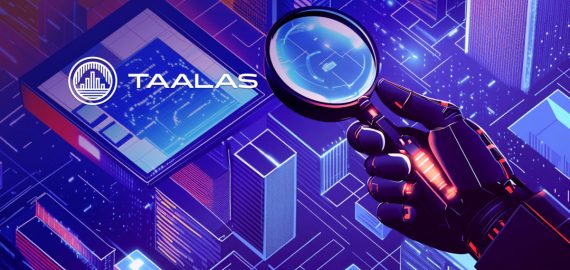0G Labs is Rewriting the Rules for Decentralized AI


In Brief
Michael Heinrich, CEO of 0G Labs, envisions AI training a large-scale language model on a decentralized network with slow data connection speeds, challenging traditional perceptions.
When most people think of AI, they imagine centralized supercomputers crunching data in secretive labs. Michael Heinrich, Co-Founder and CEO of 0G Labs, has a very different picture in mind. “One thing that was thought impossible,” he says, “is to train a large-scale language model over a fully decentralized network with very slow data connection speeds.”
That’s exactly what his team accomplished: a project that improved on Google’s prior research and boosted performance 357 times. The result? A fully decentralized training of a 107 billion parameter model—the scale of OpenAI’s open-source efforts, now achievable without a central data center. “Over time,” Heinrich adds, “we’ll be able to tap into latent compute resources across even larger networks, training models that surpass what centralized AI can do today.”
Community Control Over AI Values
Scale isn’t the only frontier. For Heinrich, governance is just as important. “Right now, when you choose a model, you inherit its value system,” he explains. “But what if your value system is different?”
He highlights the limitations of centralized AI platforms: at DeepMind’s Gemini, prompts are automatically filtered through ethics engines over which users have no control. Heinrich asks a simple but radical question: “Why shouldn’t that be in the hands of the communities themselves?”
0G Labs is designing community-owned AI, where users collectively decide the principles guiding models and agents. It’s an approach that could redefine how AI reflects societal values, rather than the priorities of a few companies.
From Infrastructure to Mission-Critical Applications
0G Labs isn’t just a platform—it’s an enabler for applications where failure is not an option. Heinrich imagines AI safely managing airports, manufacturing systems, or even governance mechanisms. “We need AI that is verifiable, transparent, and safe,” he says. “Centralized black-box AI cannot deliver on that promise.”
Through decentralized networks, the company can implement mechanisms like slashing or incentives to ensure AI agents behave correctly. “We don’t want AI that can overtake humans or cheat the system,” Heinrich adds. “Only decentralized AI can prevent that.”
Redefining the AI-Web3 Ecosystem
Ultimately, 0G Labs aims to offer more than infrastructure—it’s a new paradigm for interaction with AI. “Developers, communities, and enterprises will experience 0G differently from the platforms they’ve used before,” Heinrich says. By combining scalability, transparency, and community governance, Zero-G creates an environment where AI is safe, accountable, and aligned with the values of its users.
As AI grows increasingly influential in everyday life, Heinrich’s vision is clear: a future where decentralized networks allow AI to scale infinitely while remaining accountable to the communities it serves.
Disclaimer
In line with the Trust Project guidelines, please note that the information provided on this page is not intended to be and should not be interpreted as legal, tax, investment, financial, or any other form of advice. It is important to only invest what you can afford to lose and to seek independent financial advice if you have any doubts. For further information, we suggest referring to the terms and conditions as well as the help and support pages provided by the issuer or advertiser. MetaversePost is committed to accurate, unbiased reporting, but market conditions are subject to change without notice.
About The Author
Victoria is a writer on a variety of technology topics including Web3.0, AI and cryptocurrencies. Her extensive experience allows her to write insightful articles for the wider audience.
More articles

Victoria is a writer on a variety of technology topics including Web3.0, AI and cryptocurrencies. Her extensive experience allows her to write insightful articles for the wider audience.


















































